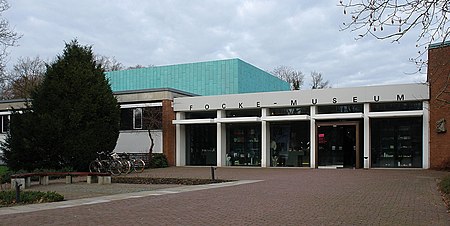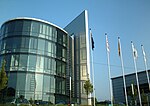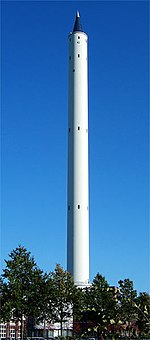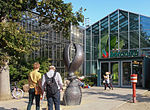Focke Museum
1924 establishments in GermanyMuseums established in 1924Museums in Bremen (city)

The Focke Museum is the museum of history and the history of art for the city and state of Bremen. It was formed in 1924 by the merger of a museum of industry and commerce and the previous historical museum, and is named for the founder of the latter, Johann Focke (1848–1922), a Bremen privy councillor (German: Senatssyndikus) and father of Henrich Focke. It is located in 4.5 hectares (11 acres) of grounds in the Riensberg neighbourhood of the city. In addition to a main building which opened in 1964 and was extended in 2002, the museum complex includes buildings dating from the 16th to the 19th centuries.
Excerpt from the Wikipedia article Focke Museum (License: CC BY-SA 3.0, Authors, Images).Focke Museum
Ernst-Grohne-Weg, Bremen Schwachhausen (Bremen-Ost)
Geographical coordinates (GPS) Address Website Nearby Places Show on map
Geographical coordinates (GPS)
| Latitude | Longitude |
|---|---|
| N 53.09152 ° | E 8.86421 ° |
Address
Haus Riensberg
Ernst-Grohne-Weg
28213 Bremen, Schwachhausen (Bremen-Ost)
Free Hanseatic City of Bremen, Germany
Open on Google Maps








